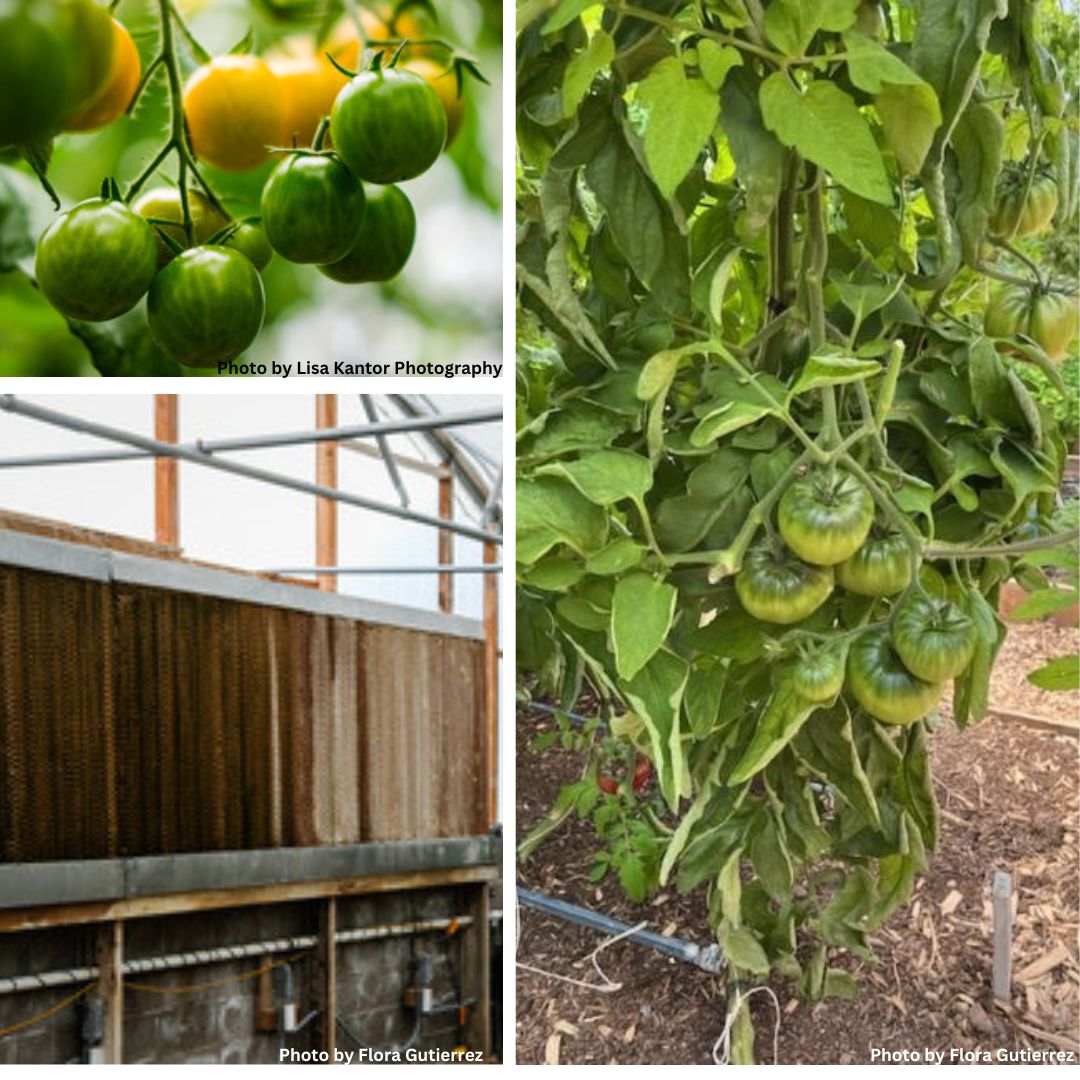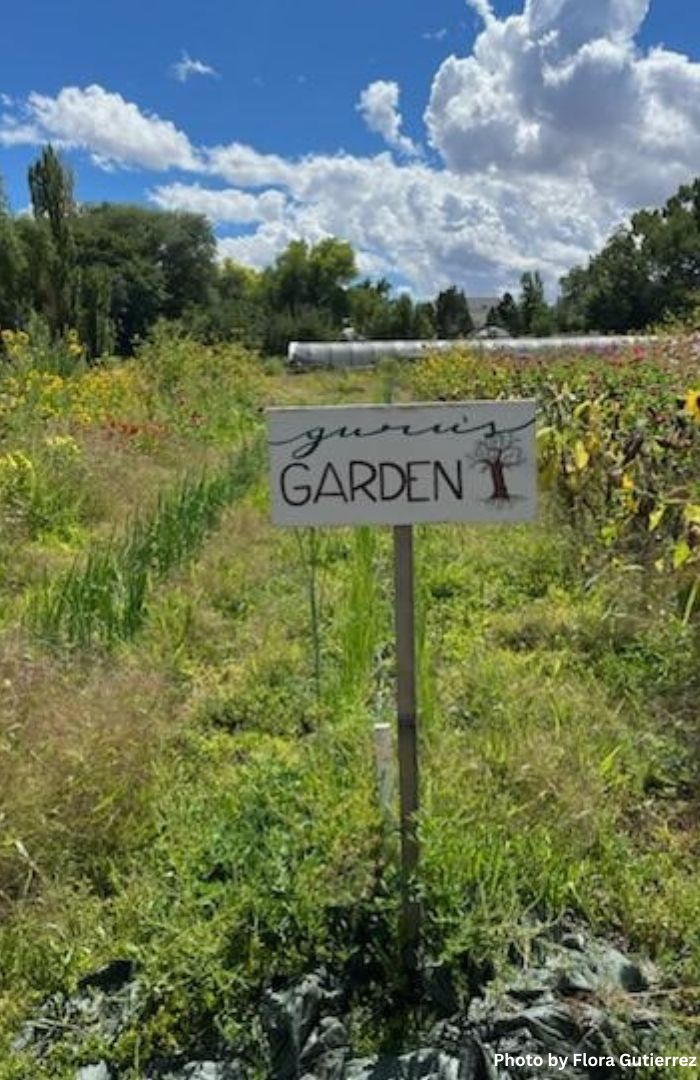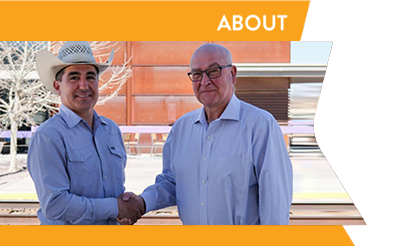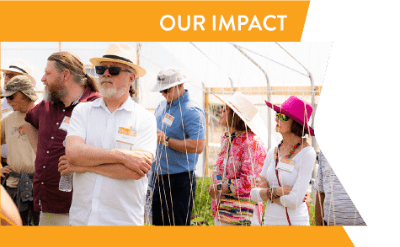
Khalsa Farm. Photos: Flora Gutierrez and Lisa Kantor Photography
January is National Mentoring Month. However, for one of our Santa Fe Farmers’ Market Farms, mentoring is a year-round activity. Sirivishnu Singh Khalsa, President of Khalsa Family Farms, Inc. shared his commitment to mentoring with us this week.
Located in Española, Khalsa Family Farms, Inc. is a 501(c)3 nonprofit organization with a deep commitment to community. Khalsa Farms is located on property belonging to the 45-year-old Sikh ashram community in Sombrillo, and is a support organization to Hacienda de Guru Ram Das, which maintains the Sikh Gurdwara (temple) and Langar kitchen serving Española and the broader Northern New Mexico community. With daily free kitchen offerings, the community serves folks from all over the area, as well as those who travel to Northern New Mexico to experience the Land of Enchantment.
A sister organization, the Food for Kids program, supplies packaged food to elementary schools each Friday, ensuring that children eat well over the weekend. The community also supports Hearts and Hands, which assists local community members who are ill and/or need help at home. Khalsa Farms also contributes food and services to the Barrios Unidas Chimayó program “Abuelita’s de Querencia” which supports grandmothers who provide childcare for their grandchildren.
Back at the farm, Khalsa Family Farms, Inc. offers an internship program, where a cohort of interns learn best practices of organic farming, yoga, meditation, essential ingredients and herbs for a satisfying vegetarian diet, and culinary skills – all within a healthy drug and alcohol free living environment. Participants in the internship program are drawn from across the country and even internationally. Currently, three of the interns hail from London. Two to three months is the standard residency, but some interns have stayed a year. The participants represent the gamut: from college students taking a semester off to adults exploring career and lifestyle changes.
“It’s an exchange of skills, knowledge, and service,” said Sirivishnu Singh Khalsa. He continued, “one of our most exciting projects now is creating a 6,000-gallon aquaponic pond with koi fish for leafy green crops. It was a development that we had to pause during the pandemic, but we are now excited to be working with a Santa Fe Community College Aquaponics program graduate to accomplish the project.”
The farm team of two full-time farm workers, three part-time workers, and four interns are kept busy year-round. Growing all of the typical seasonal produce and the greens and herbs that carry them through the winter is complemented by off-season construction, cleanup, and preparing the soil for the following season.
A frequent visitor to Santa Fe since the 1970s, Sirivishnu and his wife moved to Northern New Mexico in 2016 from New York City, where he was involved in the construction industry. In 2018, he put his construction background to good use and built their 9,000 square foot high tunnel indoor growing space with a climate battery (an in-ground thermal air exchange system that is the primary heat source during the wintertime). Since then, they have installed three caterpillar tunnels (a simple seasonal extension structure named because of its segmented appearance), adding another 4,800 square feet of indoor growing space that supplements their winter growing area. The greenhouse has an evaporative cooler that pulls outside air through wet pads to provide moisture and coolness to the greenhouse plants.

Khalsa Farm. Photos: Flora Gutierrez
One-third of their electrical power is generated by 16 solar panels. The farm aspires to add another 12 – 15 kilowatts from solar to become energy neutral. Sirivishnu is interested in exploring the Institute’s new solar initiative as part of the Microloan Program in collaboration with Remy’s Good Day Fund.
For the other essential resource, they rely primarily on their community well for irrigating the crops and supplying water year-round. They do have access to the acequia, however because it is seasonal, unreliable, and the water needs extensive filtering, they use it as a secondary water source used for cover crops and to water fruit trees.
Educating the public about organic and sustainable farming practices is also central to its mission. In 2022, Khalsa Family Farms, Inc. was one of the featured stops on Slow Food Santa Fe’s popular Annual Farm Tours. Among the striking features for visitors were the rows of vertical tomato plants extending to the ceiling of the greenhouse. A common practice in commercial farming, this trellising method involves clipping the plants to twine suspended from wire above once the plants reach several feet in height, then moving the clips up the line as the plants grow. Sirivishnu advised that “pruning the lower branches, suckers, and excessive flowers is important so that energy can rise to a higher level and maximize the fruit production.”
You will find Khalsa Family Farms, Inc. at the Santa Fe Farmers’ Market every Saturday. Last week they brought nearly 100 pounds of greens, sunflower microgreens, and sprouts to town. In February that will double, and in March they will display triple the amount of greens. “Once we start to get ten hours of sun each day, and as the sun moves north, we have more consistent production and the output grows exponentially each month,” he said.
The surge of produce is like the tide coming in for the transplanted East Coaster, Sirivishnu Singh Khalsa.






